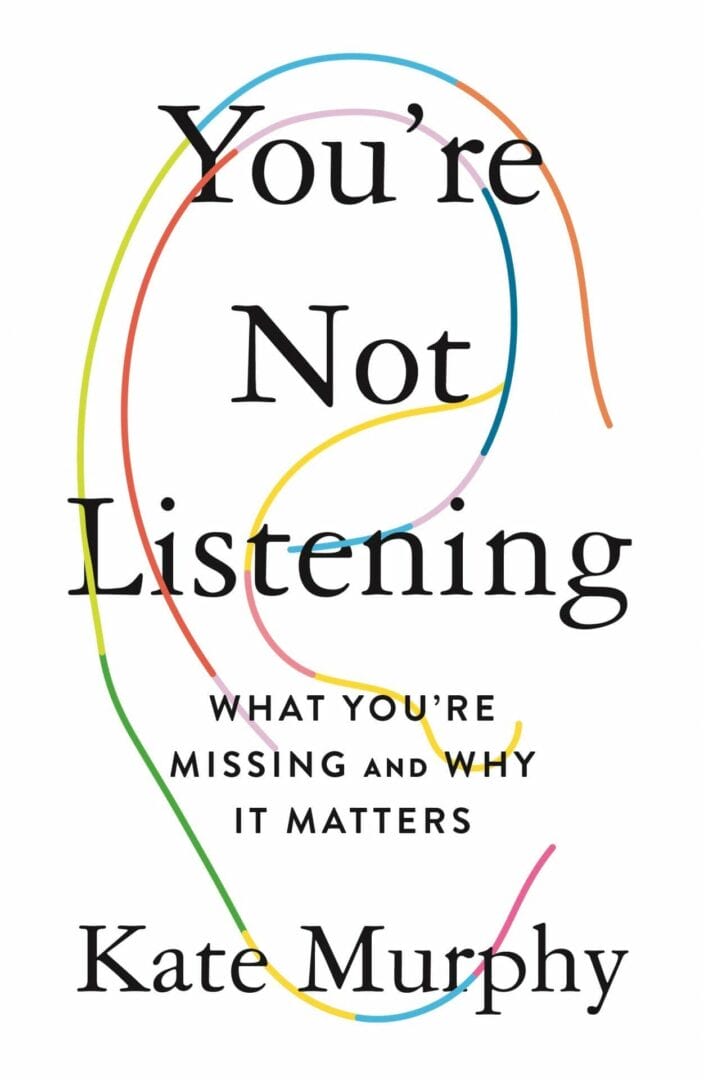Book review: ‘You’re Not Listening’ shares valuable insight

Kate Murphy’s “You’re Not Listening: What You’re Missing and Why It Matters” is an eye-opening book, especially if you think you’re a good listener.
In a day in which social media, pithy headlines, and streaming video are ubiquitous, listening—really listening—is becoming harder to do, and that’s not a good thing, writes Murphy, a Texas-based journalist who’s made a career of listening.
According to research cited by Murphy, the current average human attention span is eight second, down from 12 seconds in 2000. To put that into perspective, it’s believed that goldfish have a nine-second attention span.
Uh, yeah. That’s pretty troubling and is a good indicator that society as a whole has challenges when it comes to listening.
In the book, Murphy looks at listening as a communication tool from several perspectives, including why people don’t listen, why they don’t want to listen, and how listening can build strong interpersonal relationships.
The author argues that while listening may at first seem like a passive action, it’s actually, if done correctly, an active one instead. Because they don’t know how to listen may be why so many people struggle to listen. Good news, though: listening well is something people can learn how to do, which Murphy covers in the book.
One of the biggest obstacles to listening, the author maintains, is that people often assume they know what a speaker is going to say and tune out or only half-listen. Sadly, people tend to do this to those who are closest to them, including spouses, children, and friends. It’s not until the listener adopts the mindset that the speaker has something valuable to say that true listening can happen.
Based on the concept that humans have two ears and one mouth, Murphy suggests listening twice as much as speaking is a good approach to communicating with others.
In an especially powerful part of the book, the author recounts an experience she had while working on a story about Catholic priests at a cathedral in Mexico. People who want to speak to the priests often overrun the church. Long lines are the norm as the priests spend long hours in the confessionals in order to accommodate all who come. One of the priests pointed out to Murphy that a considerable number of those who enter the church’s confessionals don’t actually confess sins. They talk about their families, their hopes, and their challenges. In other words, they want someone to listen to them.
It’s human nature to want to be heard, but it’s not human nature to want to listen. That’s something people have to learn how to do, which is something Murphy offers advice on in the book.
Murphy makes an insightful assertion in the final part of the book that argues that between speaking and listening, listening is the more powerful communication tool.
“You’re Not Listening” is a worthwhile read that can be a good starting point for becoming a better listener. There is, after all, a lot you can learn from what others have to say.






